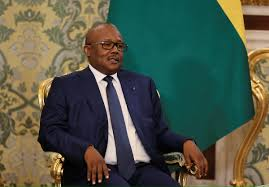Incumbent Umaro Sissoco Embalo faces surprisingly strong competition in Guinea-Bissau’s presidential election on Sunday, a contest unfolding against the backdrop of a booming cocaine trade and a deeply polarised political climate.
His main challenger is Fernando Dias, 47, of the Party for Social Renewal (PRS), who has drawn large crowds while promising to promote security and reconciliation and prevent soldiers in the coup-prone West African nation from interfering in politics.
Though there are 12 candidates in the running, the race comes down to ex-army general Embalo, 53, and Dias, and Dias has a strong chance of succeeding, said Tamilton Teixeira, a sociologist at the Catholic University of Bissau.
Whoever wins, Teixeira said, will have a huge task trying to turn the page on Guinea-Bissau’s long history of political instability and failed efforts to improve basic services and diversify an economy hugely dependent on cashew production.
“A future president of Guinea-Bissau, if he wants to do things differently, he has to do the opposite of everything that has already been done,” Teixeira said.
Provisional results are expected to be announced within 48 hours.
Dias has drawn support from former prime minister Domingos Simoes Pereira, who lost to Embalo in a close and contested runoff in 2019. Pereira was widely seen as Embalo’s top challenger this year before being disqualified after authorities said he filed his papers late.
Pereira’s absence makes this election the first without a candidate from the African Party for the Independence of Guinea and Cape Verde (PAIGC), which led the nationalist movement for independence from Portugal.
If neither Embalo nor Dias earns more than 50% of the vote, the other candidates could prove “important and decisive” in a runoff, Teixeira added.
Reuters


